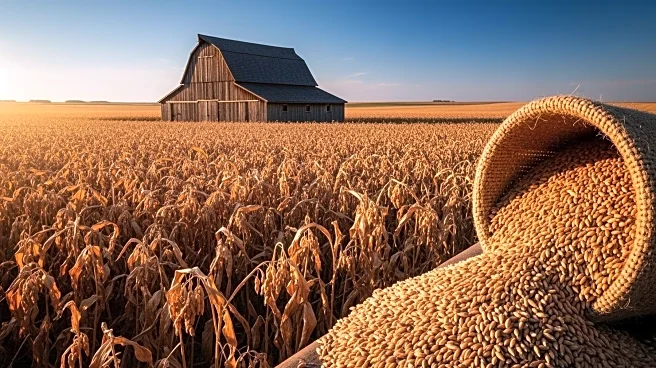What's Happening?
Kansas farmers are experiencing a paradoxical situation where a tremendous milo crop is threatened by low prices and disappearing markets. Despite favorable weather conditions leading to an excellent harvest, prices for wheat, milo, corn, and soybeans have dropped significantly compared to previous years. The Trump administration's cuts to international food distribution programs have further complicated the market, reducing export opportunities. Kansas, which produces about half of the U.S. milo crop, is particularly affected as traditional export markets like China have diminished.
Why It's Important?
The current situation poses a financial risk to Kansas farmers and the broader agricultural community. With reduced export opportunities and low commodity prices, farmers may struggle to maintain profitability, impacting local economies reliant on agricultural income. The loss of international markets, particularly China, underscores the need for diversification and the development of new domestic and international sales channels. This scenario highlights the vulnerability of U.S. agriculture to global trade dynamics and policy changes.
What's Next?
Efforts are underway to find new markets for milo, including potential sales to Mexico and India, and exploring domestic uses such as human consumption. The U.S. Food and Drug Administration is studying milo for food production, which could open new avenues for sales. Kansas farmers and agricultural groups are actively seeking to expand market opportunities and mitigate the impact of lost exports.











